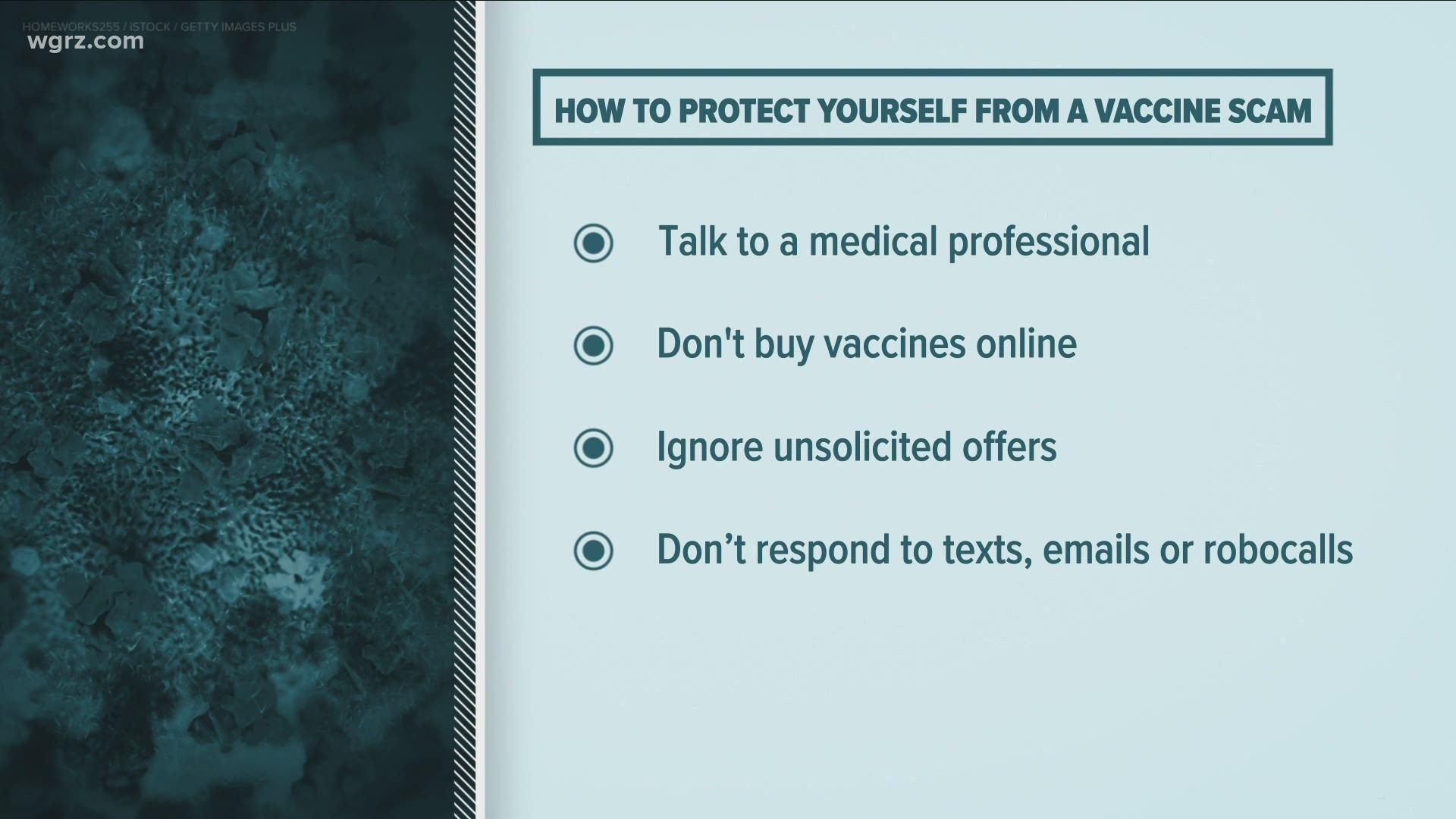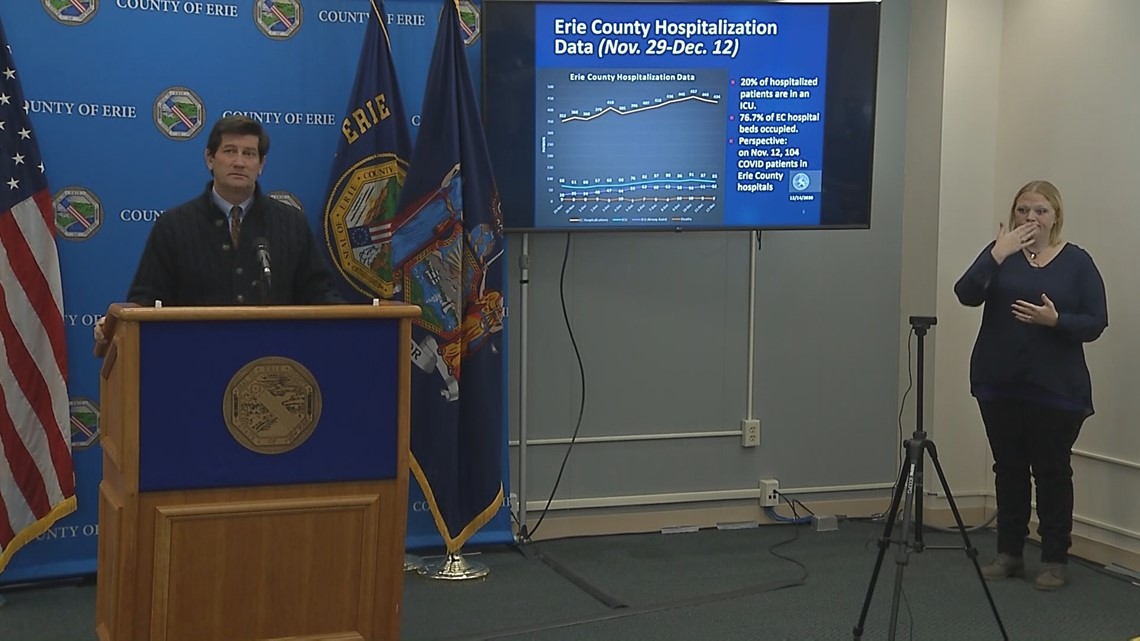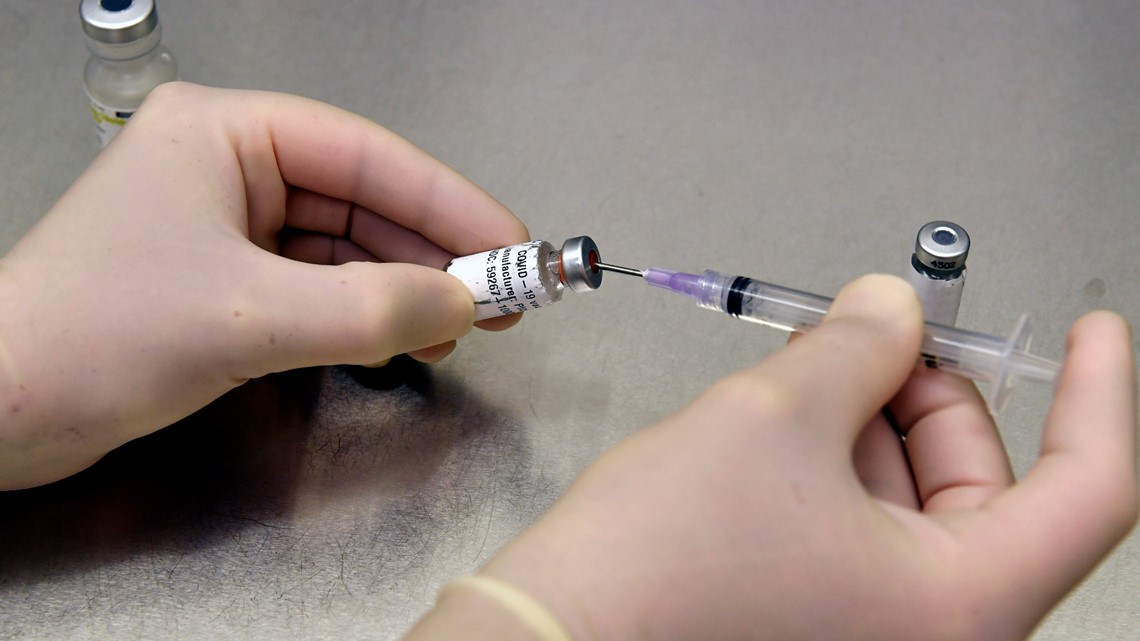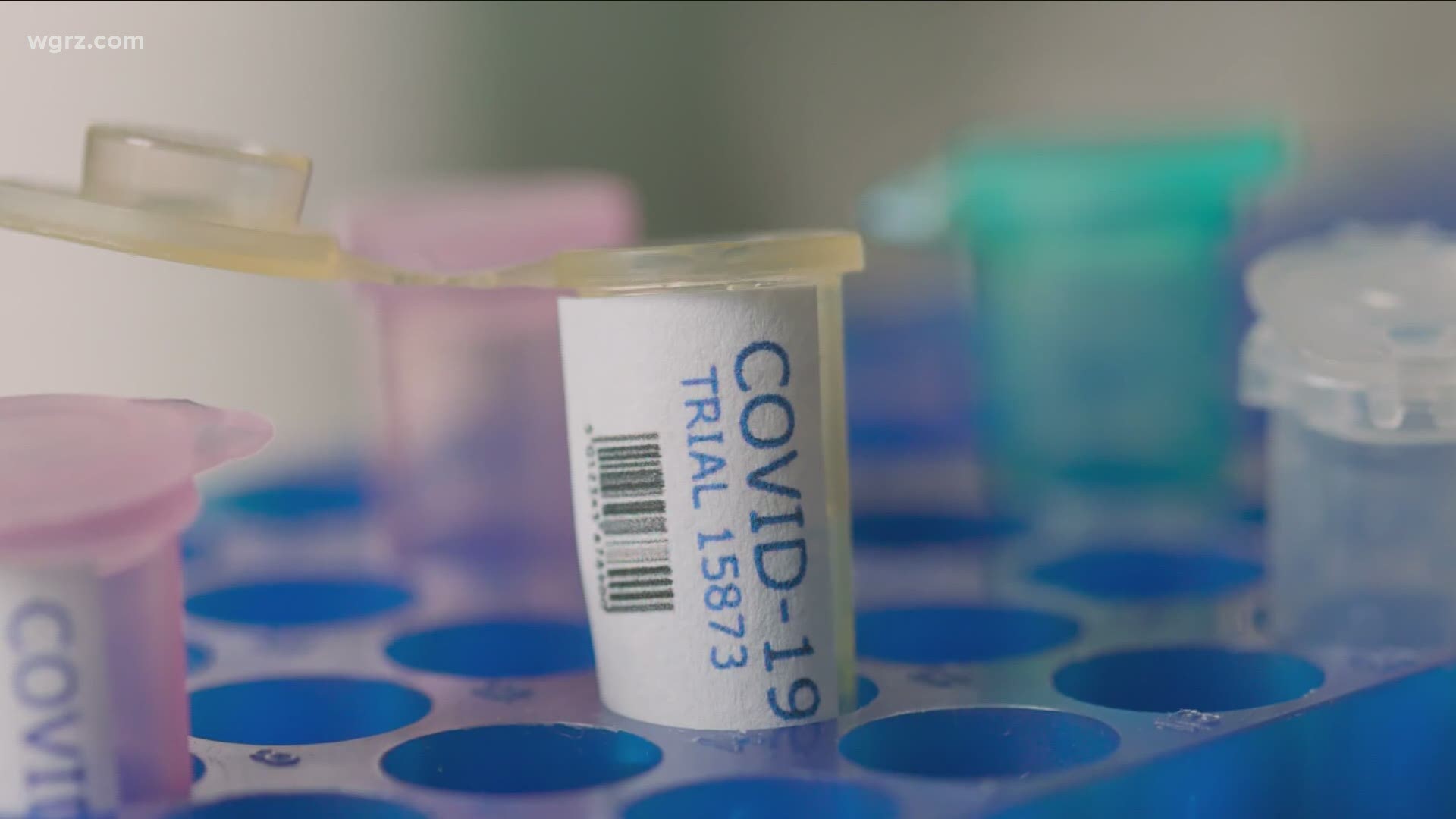BUFFALO, N.Y. — 2 On Your Side wants to help protect you from people out there who want to rip you off. As the vaccine rolls out, scammers are ready to pounce.
"There are scammers that are saying if you send x amount of money, you will then be receiving a dose of the vaccine in the mail. We've already heard of that on the internet," said Erie County Executive Mark Poloncarz on Monday.
While there haven't been any reports of direct scams in Erie County yet, the internet ones are a problem. Just know that the vaccine isn't being mailed to people, and most people can't even get it yet.
Earlier this month, the Better Business Bureau issued a COVID-19 vaccine scam alert. That was before the vaccine even started going out. It offers four tips on how to spot a scam that you can also share with your family members.
Research carefully. If something sounds too good to be true, it probably is. Check facts through official news sources. You can always ask us to Verify something for you. Also, know that you can't buy the vaccine online or in stores.
Check with your doctor. They will be able to help you figure out whether you will qualify to get the vaccine before the general public based on your risk factors and medical situation.
Ignore calls for immediate action. Scammers play to your emotions, and while getting the vaccine sooner might be appealing, a scammer just wants to take your money.
And if you think the link may be real? Double check the URL. If it's a U.S. government website, make sure it's a .gov, and search for it yourself instead of just clicking on a link in a phishing scheme.
U.S. Immigration and Customs Enforcement launched Operation Stolen Promise 2.0 last month to fight people trying to sell fake vaccines.
I.C.E. is expecting fake versions of the approved vaccines to start showing up in the U.S., and the government agency has posted tips online that you can share with your friends and family members.
Always talk to a medical professional if you have any questions. Especially before getting the vaccine. Remember, most of us won't be able to get it for months.
Don't buy something claiming to be a vaccine online. You can't buy these vaccines on the internet.
Ignore unsolicited offers for vaccines and miracle treatments or cures. That means don't respond to emails, texts, or robocalls. The criminals could be trying to get your personal information even if you don't buy what they're selling, and that could cause you even more problems.
If you spot a scam, you can report it so other people don't get ripped off.




